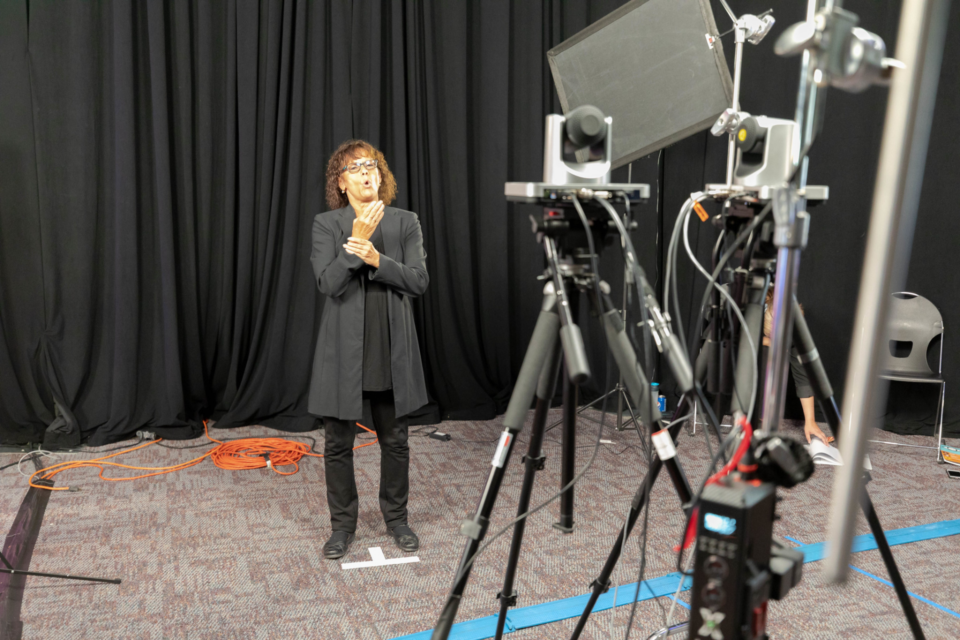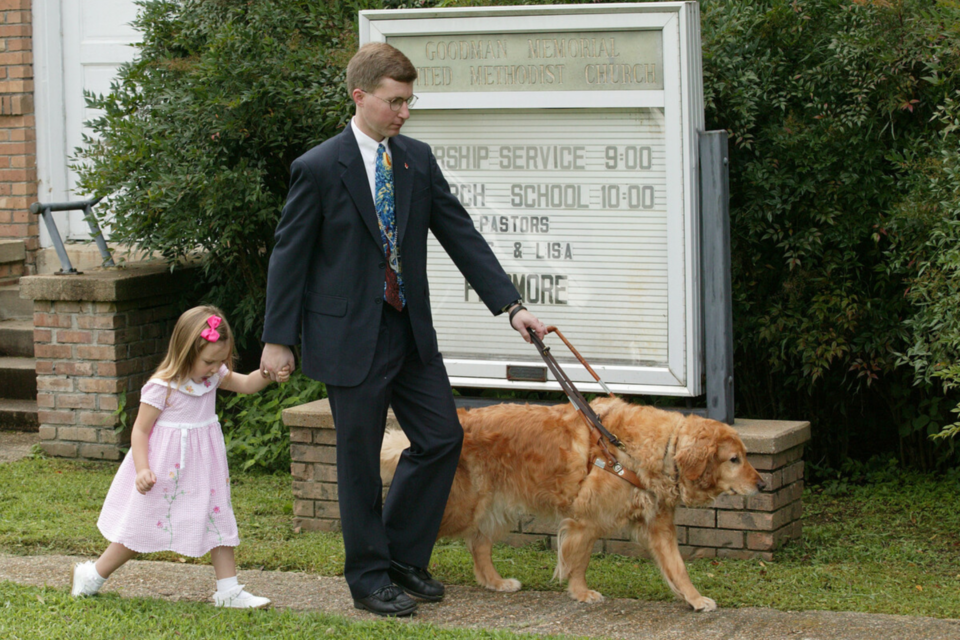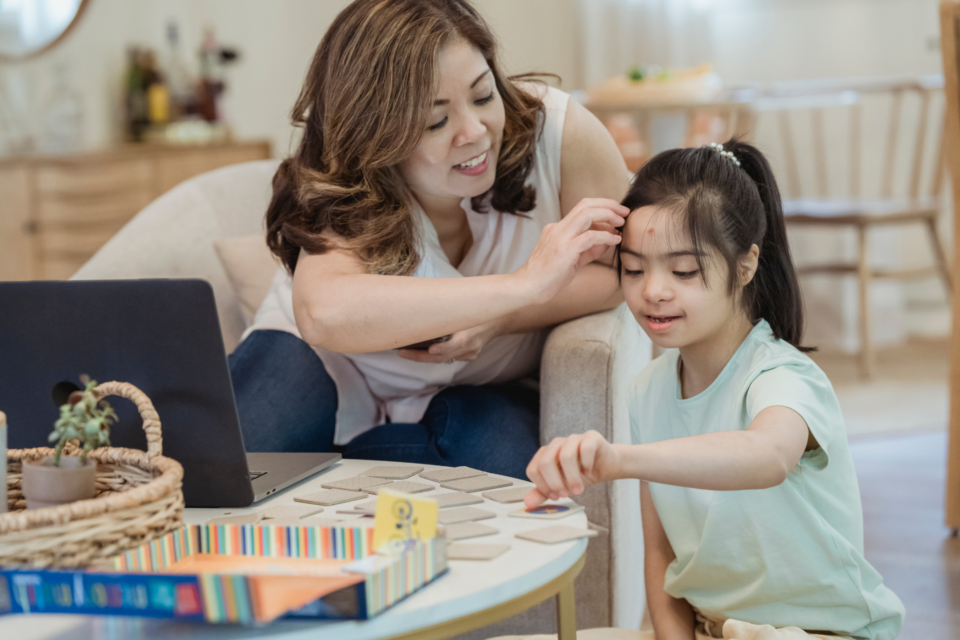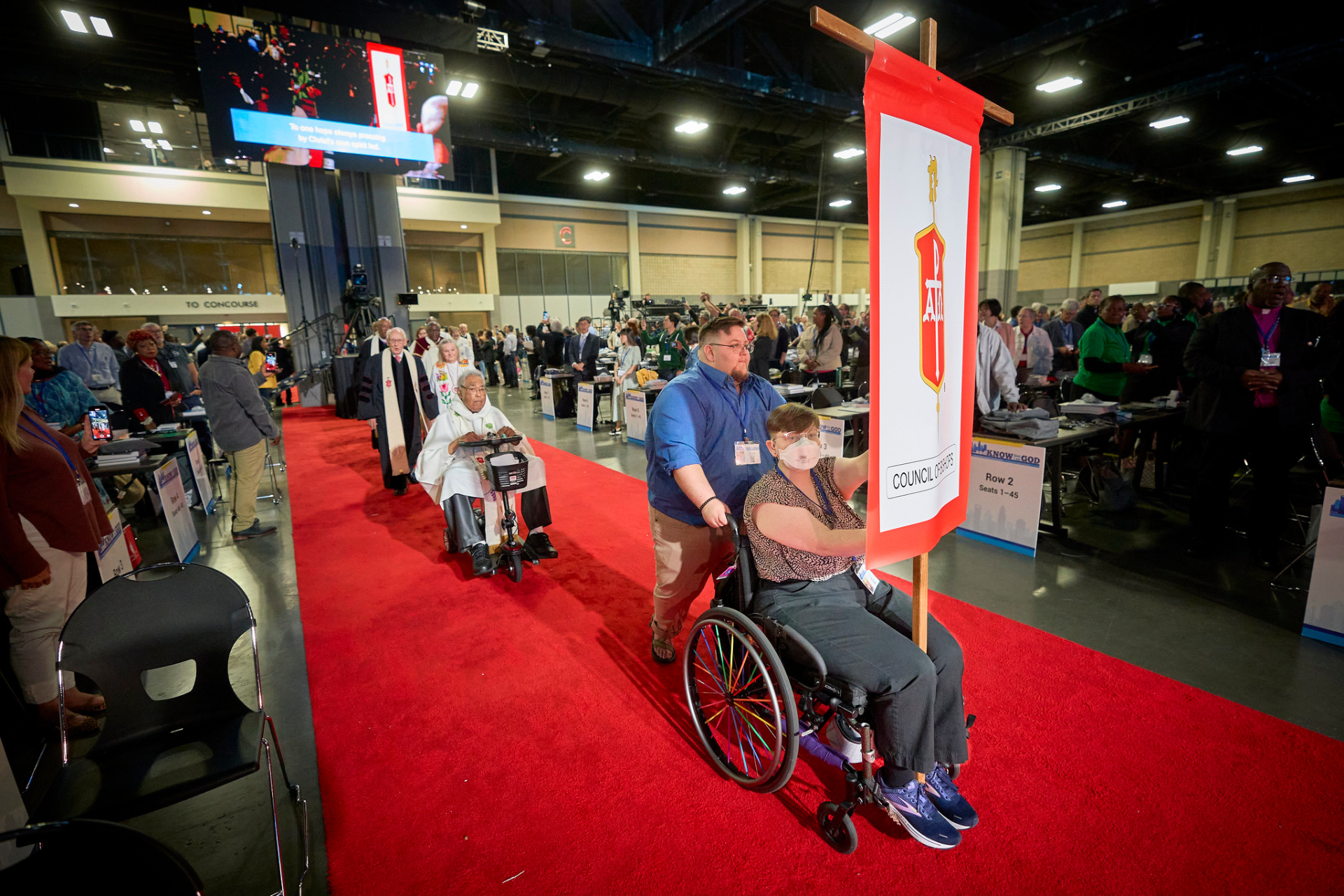The Michigan Conference’s Division on Disability Concerns is here to help churches become inclusive spaces that empower and support people with disabilities to achieve their full participation.
JAMES DEATON
Content Editor
How do we create worship spaces that welcome and include all human bodies that God has wonderfully created? How do we build structures and policies that empower and support people with disabilities in achieving full participation in the life of the church at all levels?
It’s hard to know where to start when dealing with aging buildings and human nature’s tendency to resist change. However, there are some simple steps churches can take to make their spaces more accessible and welcome all of God’s children to worship and to serve in leadership positions.
The Division on Disability Concerns, part of the Michigan Conference’s Board of Justice, is available to help congregations navigate these challenges and resource them for the work of building God’s beloved community. God calls us to dismantle the ableism and ageism that continue to impact how we perceive and treat our siblings in Christ.
Do you need support or guidance on these matters? Complete this online form (or click the button below) to let the division know that your faith community wants to do more. This volunteer team of Michigan United Methodists will be glad to help you.
According to Jenn, a division member who is a lay member of Redeemer UMC in DeWitt, transforming our perspective and priorities around this issue is a crucial guiding principle if a church is serious about welcoming all. “Barriers that prevent people from fully engaging in whatever activity is going on,” she said, “need to be identified and broken to put people first.”
When we prioritize people over long-held traditions and fixed ways of doing things and invite all people to speak up, we see God’s beloved children for who they are. They can have a place at the table and be invited to use their gifts. We see people with disabilities by getting to know their needs and identifying what barriers prevent them from having a whole experience.
This begins with asking God for an open heart and mind and cultivating a curious spirit by listening to and learning from the stories of people with disabilities. This leads to asking honest questions, evaluating current worship spaces and experiences, and making creative changes so everyone can participate equally.

According to our United Methodist Social Principles, revised and adopted at the 2024 General Conference, “‘people with disabilities’ refers to a broad group of people living with distinctive cognitive, physical, developmental, sensory, neurological, intellectual, and psychological conditions or challenges.” There’s no universal definition, but this is a good starting point.
Some disabilities are apparent by looking at a person’s body or mobility. These persons may utilize assistive technology such as eyeglasses, a walker, or a wheelchair. Other disabilities are non-apparent to the human eye. They may be related to mental health needs, internal differences, or non-apparent injuries or discomfort (decreased sense of hearing or seeing, for example).
So, how do we practice hearing and learning from people with disabilities and making positive changes? Jenn noted that some people may feel uncomfortable sharing their needs out of fear of standing out or being a “bother,” so church leaders need to meet those fears with reassurance that these individual needs are important, too.

Jenn also noted that some persons with disabilities may be open about their needs, but their requests are not taken seriously or added to church agendas to take action. Those members feel hurt that they are not considered a valuable part of the body of Christ. “If we don’t prayerfully address the needs of our members and make changes,” she noted, “it can create division, decrease capacity, and cause unintended pain. The hope is for all United Methodist churches to try to make activities diversified and change become socially acceptable.”
Bethany, another division member who is clergy at Midland: First UMC, explains that concerning non-apparent disabilities, we must be kind by asking questions about something we might not understand and need more information about and then be open to hearing frank answers. “When honest answers are given,” she noted, “be committed to learning and growing in grace, whatever that might look like, including if that means finding a solution to a problem.”
The solution may look different, depending on the person’s disability and how they experience it. Sarah, a division member who is a lay member of Kalamazoo: Westwood UMC, highlighted this point: “Believe what the person is experiencing. You can have a line of people with the same disability, and they all have been affected differently. If you have the opportunity to learn about someone’s disability, you’ve learned more about the person, not just the disability.”

When you learn more about the person, you have a greater capacity to see and love them as God calls us to do. Amee, another division member who is clergy at Plainwell: First UMC, said, “We preach and teach a lot about how God’s love is available to all, but if we aren’t doing all we can to ensure accessibility, that message won’t get out. God’s doing God’s part. We need to do ours to spread the gospel.”
Members of the Division on Disability Concerns are available to listen to church leaders and help them take the next steps to become a more inclusive faith community. They are passionate about this work and want to be advocates and spread awareness about disability matters in the church.
Contact them (complete this simple form), and they’ll help you put together a plan that is suitable for your faith community. In the meantime, here are some simple, practical things you can do to make your church more accessible, regardless of size or budget. Four division members share their suggestions below.
Jenn’s Suggestions
-
- Identify a disability coordinator in your congregation who will be the go-to person to focus on the needs of people with disabilities in all church activities. Please share that information with us, the Michigan Conference’s Division on Disability Concerns, and the Disabilities Ministries Committee (DMC) of The United Methodist Church.
- Think of people with disabilities that you know and invite them to attend a church activity. Ask for their feedback on their joys and concerns before, during, and after the event. Was anything mentioned that your church should address before their attendance, during their attendance, or after their attendance to demonstrate love, acceptance, and a sense of belonging to the new guest?
- Each United Methodist congregation’s trustees annually complete a disability audit (find it on this page) for the Disability Ministries Committee of The United Methodist Church that is submitted to the Michigan Conference. This checklist helps all United Methodist churches globally look at specific details related to hospitality and their building to see where they are currently and to use it to set goals to be more inclusive year to year. The Michigan Conference Division on Disability Concerns can assist you with the audit process.
Bethany’s Suggestions
-
- Have conversations with anyone associated with the church who would be blessed by greater accessibility. What accessibility means to one person, especially if they are able-bodied, is very possibly different from what it means to someone else.
- Apply for grants. Many people have informed me that ministry grants and money are available to help make our churches more accessible.
- Be in prayer and ask God how your church can best meet the needs of those with disabilities in your community. Then, listen for the answer and act on whatever God tells you. We have the opportunity to be His hands and feet if we are willing to do so by walking in humility.
Sarah’s Suggestions
-
- Make sure you have accessible bulletins and projected presentations (verbally describe any pictures that appear on a screen).
- Create space for wheelchair users (not just in the back of the sanctuary).
- Provide earbuds for those with sound sensitivity.
- Churches should have ableism training (find resources on this page). This would help set up the space with an understanding of our own ablest beliefs/thoughts.
- It would be important to ensure each of your local church committees includes a person with a disability.
Amee’s Suggestions
-
- Take the annual accessibility audit seriously (find it on this page). It’s more than just another form to fill out. It can be a tool for charting your church’s progress and an avenue for the Spirit to work within your congregation.
- Engage in a book study. There are tons of great books out there, and meeting together to discuss the topic of faith and disability can be a powerful thing.
- Organize a movie night that focuses on a person or people with non-apparent disabilities to raise awareness about this important but often overlooked issue.
Last Updated on September 11, 2024


